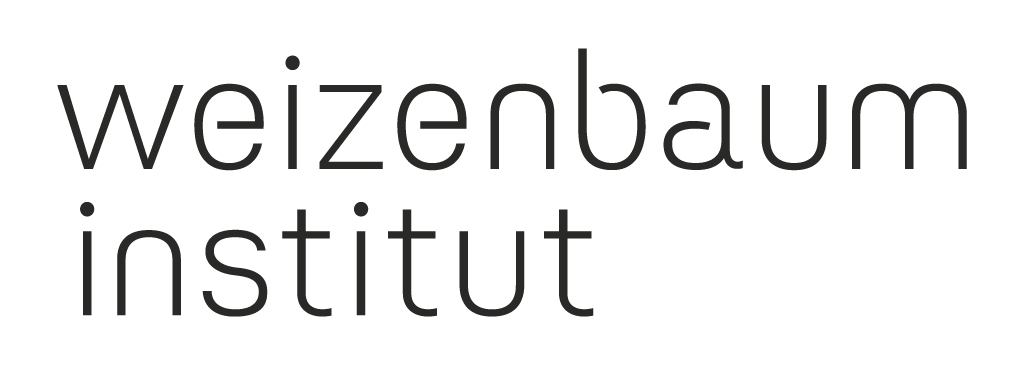_carbolytics
A project by Joana Moll commissioned by Aksioma
in collaboration with Barcelona Supercomputing Center (BSC) and in partnership with The Weizenbaum Insitute + Sónar +D
Carbolytics is a project at the intersection of art and research that aims to raise awareness and call for action on the environmental impact of pervasive surveillance within the advertising technology ecosystem (AdTech), as well as to provide a new perspective to address the social and environmental costs of opaque data collection practices. Online tracking is the act of collecting data from online user activity, such as reading the news, purchasing items, interacting on social media or simply doing an online search. It is known that tracking and recording users’ behaviour has become a major business model in the last decade. However, even though the societal and ethical consequences of abusive online surveillance practices have been a subject of public debate at least since Snowden’s revelations in 2013, the energy and environmental costs of such processes have been kept away from the public eye. The global data collection apparatus is a complex techno maze that needs vast amounts of resources to exist and operate, yet companies rarely disclose information on the environmental footprint of such operations. Moreover, part of the energy costs of data collection practices is inflicted upon the user, who also involuntarily assumes a portion of its environmental footprint. Although this is a critical aspect of surveillance, there’s an alarming lack of social, political, corporate and governmental will for accountability, thus a call for action is urgent.
AdTech is the primary business model of the data economy ecosystem or, in other words, the “money-making machine that fuels the Internet”.1 In 2021, the global ad spending across platforms reached $763.2 billion, and it is expected to rise 10% in 2022.2 Moreover, in 2020, 97.9%3 of Facebook’s and 80%4 of Google’s global revenue was generated from advertising, and, excluding China, these companies, together with Amazon, will dominate 80% to 90% of the market in 2022.5 Yet, despite the extraordinary importance of AdTech within the global economy, its methods and processes are extremely opaque and thus incredibly difficult to control and regulate.
In a nutshell, AdTech analyses, manages and distributes online advertising. It encompasses a wide array of players, tools and methodologies, such as ad exchanges, real-time bidding and micro-targeting, which heavily rely on user data in order to effectively target and deliver advertising. Hence, data collection is a key resource to its global supply chain. But how is user data actually being harvested?
Typically, data is collected through a user’s device through cookies and other tracking technologies integrated into devices, web pages, apps and all kinds of interactive and audiovisual digital content. Despite being created and stored in the user’s device, tracking technologies are mostly undetectable to the average user, which makes extracting large amounts of user data a relatively easy task. Moreover, despite their “invisibility” and relatively small size, tracking technologies are responsible for triggering millions of algorithmic processes that ultimately facilitate trading in data on a global scale, nurturing an ever-growing ecosystem that densely relies not just on exploiting user data but also on sucking out the power of the user’s device to actually function.
The research behind Carbolytics identifies and analyzes the carbon emissions of the total number of cookies belonging to the top 1 million websites. The investigation identified more than 21 million cookies per single visit to all these websites, belonging to more than 1200 different companies, which translates to an average of 197 trillion cookies per month, resulting in 11,442 monthly metric tonnes of CO2 emissions. It’s important to understand that this number reflects browser-based cookie traffic and does not include App tracking activity, so we estimate this number to be dramatically higher. [An extensive report on the research is available here]
Carbolytics is an interactive web-based installation that shows the average global cookie traffic in real time, or in other words, displays how cookies are parasitizing user devices to extract personal data and feed it into a massive yet obfuscated network of organisms.
Finally, by introducing this analysis on climate and collective rights, Carbolytics seeks to add an often unexplored but critical layer to the traditional individual rights-based criticism of the AdTech industry, while providing strong evidence to inform the many communities that advocate for tech and climate change accountability.
in collaboration with Barcelona Supercomputing Center (BSC) and in partnership with The Weizenbaum Insitute + Sónar +D
Carbolytics is a project at the intersection of art and research that aims to raise awareness and call for action on the environmental impact of pervasive surveillance within the advertising technology ecosystem (AdTech), as well as to provide a new perspective to address the social and environmental costs of opaque data collection practices. Online tracking is the act of collecting data from online user activity, such as reading the news, purchasing items, interacting on social media or simply doing an online search. It is known that tracking and recording users’ behaviour has become a major business model in the last decade. However, even though the societal and ethical consequences of abusive online surveillance practices have been a subject of public debate at least since Snowden’s revelations in 2013, the energy and environmental costs of such processes have been kept away from the public eye. The global data collection apparatus is a complex techno maze that needs vast amounts of resources to exist and operate, yet companies rarely disclose information on the environmental footprint of such operations. Moreover, part of the energy costs of data collection practices is inflicted upon the user, who also involuntarily assumes a portion of its environmental footprint. Although this is a critical aspect of surveillance, there’s an alarming lack of social, political, corporate and governmental will for accountability, thus a call for action is urgent.
AdTech is the primary business model of the data economy ecosystem or, in other words, the “money-making machine that fuels the Internet”.1 In 2021, the global ad spending across platforms reached $763.2 billion, and it is expected to rise 10% in 2022.2 Moreover, in 2020, 97.9%3 of Facebook’s and 80%4 of Google’s global revenue was generated from advertising, and, excluding China, these companies, together with Amazon, will dominate 80% to 90% of the market in 2022.5 Yet, despite the extraordinary importance of AdTech within the global economy, its methods and processes are extremely opaque and thus incredibly difficult to control and regulate.
In a nutshell, AdTech analyses, manages and distributes online advertising. It encompasses a wide array of players, tools and methodologies, such as ad exchanges, real-time bidding and micro-targeting, which heavily rely on user data in order to effectively target and deliver advertising. Hence, data collection is a key resource to its global supply chain. But how is user data actually being harvested?
Typically, data is collected through a user’s device through cookies and other tracking technologies integrated into devices, web pages, apps and all kinds of interactive and audiovisual digital content. Despite being created and stored in the user’s device, tracking technologies are mostly undetectable to the average user, which makes extracting large amounts of user data a relatively easy task. Moreover, despite their “invisibility” and relatively small size, tracking technologies are responsible for triggering millions of algorithmic processes that ultimately facilitate trading in data on a global scale, nurturing an ever-growing ecosystem that densely relies not just on exploiting user data but also on sucking out the power of the user’s device to actually function.
The research behind Carbolytics identifies and analyzes the carbon emissions of the total number of cookies belonging to the top 1 million websites. The investigation identified more than 21 million cookies per single visit to all these websites, belonging to more than 1200 different companies, which translates to an average of 197 trillion cookies per month, resulting in 11,442 monthly metric tonnes of CO2 emissions. It’s important to understand that this number reflects browser-based cookie traffic and does not include App tracking activity, so we estimate this number to be dramatically higher. [An extensive report on the research is available here]
Carbolytics is an interactive web-based installation that shows the average global cookie traffic in real time, or in other words, displays how cookies are parasitizing user devices to extract personal data and feed it into a massive yet obfuscated network of organisms.
Finally, by introducing this analysis on climate and collective rights, Carbolytics seeks to add an often unexplored but critical layer to the traditional individual rights-based criticism of the AdTech industry, while providing strong evidence to inform the many communities that advocate for tech and climate change accountability.
_Extended thoughts on the project //
Analysis, Exposure and Addition, the aesthetic
and ecological logics of Joana Moll's Carbolytics
By Matthew Fuller
New Tools for Collective Supervision
By Marta Peirano
Analysis, Exposure and Addition, the aesthetic
and ecological logics of Joana Moll's Carbolytics
By Matthew Fuller
New Tools for Collective Supervision
By Marta Peirano
Technical Development Ramin Soleymani
Research Team at BSC Fernando Cucchietti, Patricio Reyes, Marta Esteban Fernández & Carlos García Calatrava
Production Aksioma – Institute for Contemporary Art, Ljubljana, 2022
Special thanks to Marcela Okretič, Janez Janša, for their generosity throughout the process, and Astrid Rousse and Antònia Folguera for their kind support during the production of this project. Also, to Fernando Cucchietti, Patricio Reyes, Miguel Fernández, Luz Calvo, Sol Bucalo, Arnau Folch, Daniel Irrgang, Matthew Fuller, Marta Peirano, Bianca Herlo, Marta Millet, Ramin Soleymani, Senka Šifkovič Vrbica, Urša Chitrakar, Claudio Guarnieri, Marta Gràcia, Eugenio Tisselli, and Panoptikon for their incredibly valuable thoughts and inputs.
In the framework of konS – Platform for Contemporary Investigative Art
The project konS: Platform for Contemporary Investigative Art was chosen on the public call for the selection of the operations “Network of Investigative Art and Culture Centres”. The investment is co-financed by the Republic of Slovenia and by the European Regional Development Fund of the European Union.
Research Team at BSC Fernando Cucchietti, Patricio Reyes, Marta Esteban Fernández & Carlos García Calatrava
Production Aksioma – Institute for Contemporary Art, Ljubljana, 2022
Special thanks to Marcela Okretič, Janez Janša, for their generosity throughout the process, and Astrid Rousse and Antònia Folguera for their kind support during the production of this project. Also, to Fernando Cucchietti, Patricio Reyes, Miguel Fernández, Luz Calvo, Sol Bucalo, Arnau Folch, Daniel Irrgang, Matthew Fuller, Marta Peirano, Bianca Herlo, Marta Millet, Ramin Soleymani, Senka Šifkovič Vrbica, Urša Chitrakar, Claudio Guarnieri, Marta Gràcia, Eugenio Tisselli, and Panoptikon for their incredibly valuable thoughts and inputs.
In the framework of konS – Platform for Contemporary Investigative Art
The project konS: Platform for Contemporary Investigative Art was chosen on the public call for the selection of the operations “Network of Investigative Art and Culture Centres”. The investment is co-financed by the Republic of Slovenia and by the European Regional Development Fund of the European Union.






